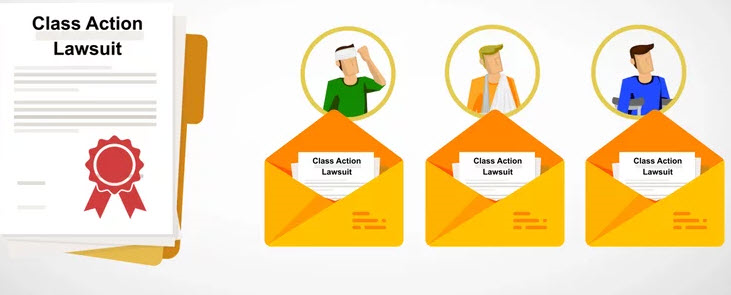Debunking Class Action Lawsuits: Your Essential Overview to Legal Choice
Trick Elements to Think About in Course Activity Legal Actions: Insights for Legal Representatives
Course action suits can be complicated and challenging for attorneys to navigate. Understanding these factors and their effects is critical for attorneys intending to efficiently represent their clients in class activity legal actions.
Class Certification Requirements
To wage a course action lawsuit, legal representatives should navigate via a collection of strict course accreditation requirements. Course certification is a crucial phase in the lawsuits process that identifies whether a group of complainants can be accredited as a class and wage their insurance claims collectively. These demands serve to make certain that class activities are suitable and effective mechanisms for settling conflicts involving countless complainants.
While there is no set mathematical limit, courts typically take into consideration a course with more than 40 members as adequately various. Furthermore, commonness is an additional important aspect in course qualification.
Adequacy of depiction makes certain that the reps will rather and appropriately shield the rate of interests of the class participants. A course action must additionally please the requirement of superiority, suggesting that a course activity is a remarkable method for settling the conflict compared to various other readily available techniques.
Navigating via these class certification requirements can be complicated and challenging for attorneys. However, understanding and conference these demands are vital to efficiently seek a course action claim in support of a team of plaintiffs.

Commonness of Cases
The following vital aspect to consider in the course qualification process is the commonality of claims among the complainants. Commonality refers to whether the course members share comparable lawful problems and concerns of fact that can be resolved jointly. To put it simply, it is necessary to determine if there prevail questions of regulation or truth that are main to the litigation and that predominate over any private issues.
To develop commonality, the complainants must demonstrate that there are factual or lawful problems that prevail to the entire class. This can be achieved by recognizing a typical training course of conduct or a common lawful theory that underlies the insurance claims (Class action lawsuit). The presence of usual questions is crucial because it advertises judicial efficiency and economic situation by enabling a solitary choice to solve the issues for the entire course
However, it is crucial to keep in mind that the commonality demand does not demand that all the individual insurance claims equal. Differences in problems or individual scenarios do not always defeat commonality if there are still typical inquiries that bind the course together.

Damages Estimations
One important facet to consider when determining problems in course action lawsuits is the precise analysis of financial losses incurred by the class members. In order to establish the appropriate amount of settlement, it is essential to evaluate the extent of harm experienced by each person within the course. This can be a complex job, as it calls for an extensive evaluation of numerous variables, such as the nature and duration of the damage, the financial effect on the influenced people, and any kind of various other pertinent factors to consider.
When assessing economic losses, it is vital to consider both the indirect and direct problems experienced by the course members. Straight problems refer to the real out-of-pocket expenditures incurred as a result of the offender's activities.
To determine problems precisely, lawyers have to gather detailed proof, consisting of monetary records, expert point of views, and statements from the course participants. They might also need to engage financial and monetary professionals who can offer understandings into the lasting financial effects of the injury experienced.
Negotiation Negotiations
Throughout negotiation negotiations, lawyers need to engage in calculated and mindful discussions to reach an equally acceptable resolution for all celebrations entailed in the class activity lawsuit (Class action lawsuit). Negotiation arrangements are an important stage in the lawsuits process, where the events try to reach a compromise without mosting likely to trial. These settlements need attorneys to employ read more their negotiation skills, lawful competence, and understanding of the situation's weak points and staminas
One essential variable to consider during negotiation negotiations is the potential risks and prices linked with proceeding to test. Lawyers have to meticulously review the likelihood of success at trial and evaluate it versus my explanation the possible benefits of a negotiation. They should additionally think about the prospective time and sources that would certainly be needed to experience a trial, as well as the potential negative publicity that might result from a public trial.
Another essential variable is the rate of interests and worries of the course participants. Attorneys need to recognize what the course members wish to accomplish through the suit and how a settlement can address their complaints. By thinking about the class members' viewpoints and seeking advice from them throughout the settlement process, lawyers can better support for their rate of interests and guarantee that any kind of negotiation gotten to is fair and adequate.
In addition, attorneys need to be prepared to work out with the opposing party and their legal agents. This calls for a deep understanding of the toughness and weaknesses of both sides' disagreements and a desire to endanger. Proficient mediators can utilize this knowledge to find commonalities and craft innovative options that meet the requirements of all celebrations involved.
Reliable Client Representation
To effectively represent their clients in class action claims, attorneys should possess a thorough understanding of the situation and carefully advocate for their customers' rate of interests. Efficient client depiction needs lawyers to develop open lines of communication and maintain a solid attorney-client partnership throughout the entire lawsuits process.
Firstly, lawyers should extensively assess the realities, lawful problems, and potential threats related to the instance. This includes carrying out a comprehensive investigation, examining appropriate records, and consulting with professionals if needed. By gaining a deep understanding of the situation, legal representatives can create a strategic method tailored to their customers' objectives and needs.
Moreover, attorneys need to actively promote for their customers' rate of interests throughout all phases of the claim. This includes preparing influential legal arguments, conducting extensive research study, and providing compelling evidence to support their clients' claims. Legal representatives need to additionally remain notified about recent developments in course activity legislation and use this understanding to strengthen page their clients' settings.
In addition to legal advocacy, reliable customer depiction involves providing regular updates, addressing inquiries, and addressing any worries that customers might have. Attorneys should be aggressive in maintaining their clients informed concerning the progression of the situation and any substantial advancements that may impact the outcome.
Inevitably, efficient client depiction requires legal representatives to be thorough, responsive, and committed to securing their clients' civil liberties and rate of interests. By taking on a client-centered approach, legal representatives can maximize the possibilities of achieving a positive outcome in course activity lawsuits.
Verdict
Finally, attorneys associated with course action claims must consider essential aspects such as course certification requirements, the commonality of insurance claims, problems calculations, settlement negotiations, and efficient customer depiction. By meticulously addressing these factors, attorneys can improve their opportunities of success in course activity legal actions and make sure that the rate of interests of their customers are secured.
Recognizing these variables and their implications is essential for attorneys aiming to successfully represent their customers in course activity legal actions.To continue with a course action suit, legal representatives must browse via a collection of rigid course qualification needs. Class certification is an important stage in the litigation process that establishes whether a team of complainants can be certified as a class and proceed with their insurance claims collectively. A class activity have to likewise satisfy the requirement of supremacy, implying that a class action is a superior technique for adjudicating the disagreement contrasted to other available methods.
One critical facet to consider when determining damages in class action suits is the exact evaluation of monetary losses incurred by the class participants.